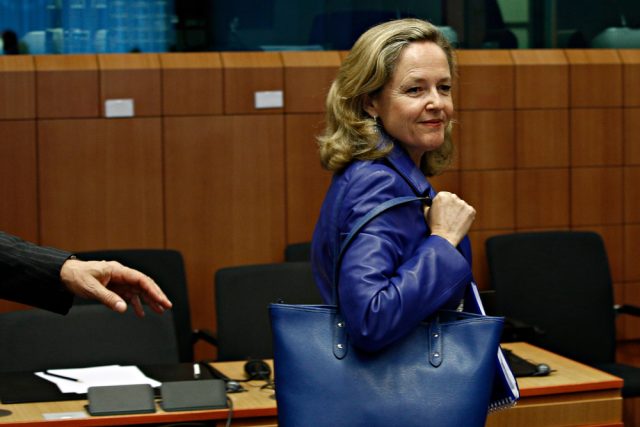
The government of acting Prime Minister Pedro Sánchez formalized the candidacy of the acting first Deputy Prime Minister, Nadia Calviño, to replace Werner Hoyer in the presidency of the European Investment Bank, one of the largest financial institutions in the world. This despite Spain’s convoluted post-election scenario. Spain also tried to nominate Calviño to lead the Eurogroup, but failed against the Irish candidate. Sánchez is, once again, betting on his Finance Minister’s qualifications.
Nadia Calviño has worked in senior management at the European Commission for 12 years. In addition, she has been Minister of Economy and Digitalization of Spain for five years and is Vice President of the Government since 2020.
If elected president, Nadia Calviño will become be the first woman to head the European Investment Bank. For Spain, securing this post would add one more name to their leadership list of international economic institutions. Spaniard Luis de Guindos is the Vice-President of the European Central Bank, José Manuel Campa is the President of the European Banking Authority, and Pablo Hernández de Cos heads the Basel Committee on Banking Supervision. This would also be the first time that the European Investment Bank has a Spanish presidency. Even though Spain is one of the bank’s main clients and the fourth largest economy in the European Union, it has never held this position.
The former European Commission official will face off against other candidates, including Margrethe Vestager, current vice president of the European Commission and European Union Commissioner for competition and digital regulation. Vestager, who is one of the best-known faces in Brussels, was Denmark’s Minister of Economy and Home Affairs.
The proposal for her candidacy to lead the EIB was made in June by Copenhagen. It could be said that Vestager was the preferred candidate to hold this position. However, after appointing an American economist to a senior post in Brussels, a decision she later had to reverse because of the controversy he caused, she lost the support of many member states, including the key support of the French Republic. Other candidates for the post include Italy’s former finance minister, Daniele Franco; the Polish Vice-President of the EIB, Teresa Czerwińska; and its Swedish Vice-President Thomas Östros. Despite the candidacies already submitted, the European Investment Bank has not yet expressed its opinion on the possible candidates to replace Hoyer.
The European Investment Bank, based in Luxembourg, was founded in 1958. Its shareholders are the 27 Member States of the European Union.
Before the resignation of the current president, Werner Hoyer, at the end of 2023, the bloc’s finance ministers will have a meeting in which they will address the question of the candidacy. The appointment, which requires a large majority of the votes of the Member States and the support of France and Germany, will officially be agreed at this informal meeting. This Council of Ministers of Economy and Finance (Ecofin), will take place in the Spanish city of Santiago de Compostela on September 15 and 16.
The calendar, which establishes that the election is formalized in October, would allow Nadia Calviño to continue with her current responsabilities until January 1, 2024, since this would not materialize her incorporation into the European Investment Bank. If she assumes this position, Calviño would have to abandon her position as president of the IMF’s International Monetary and Financial Committee, which would expire this year. She has claimed, however, she would not forfeit her role as Deputy Prime Minister of Spain if she gets elected. Spain, which remains in political limbo since the last general election, has already begun talks with European Union member states, shareholders of the European Investment Bank, and thinks it can get the necessary support to invest Calviño.



 Subscribe
Subscribe